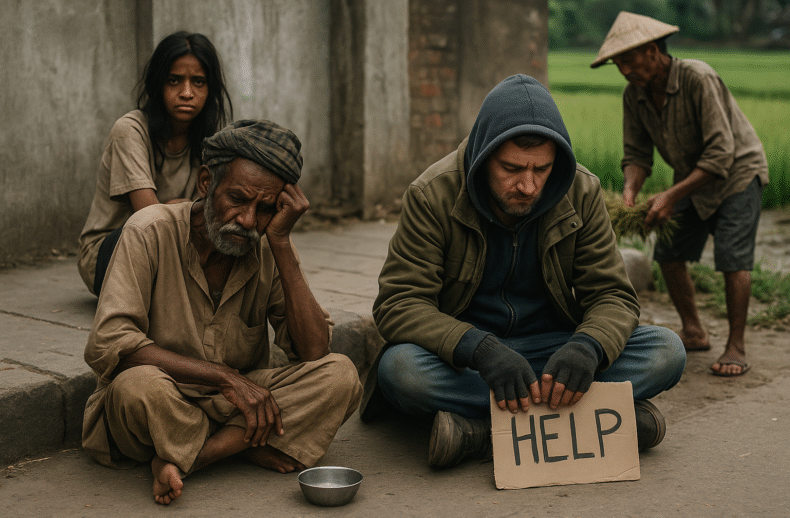To be poor is more than lacking money — it is to be excluded from security, dignity, and recognition. Yet poverty feels different across the world: in the U.S., it brings shame; in Vietnam, it may carry quiet pride. This essay explores how cultural expectations, digital comparison, and economic systems shape the emotional and structural experience of poverty — and how global inequality is not only endured but felt.



